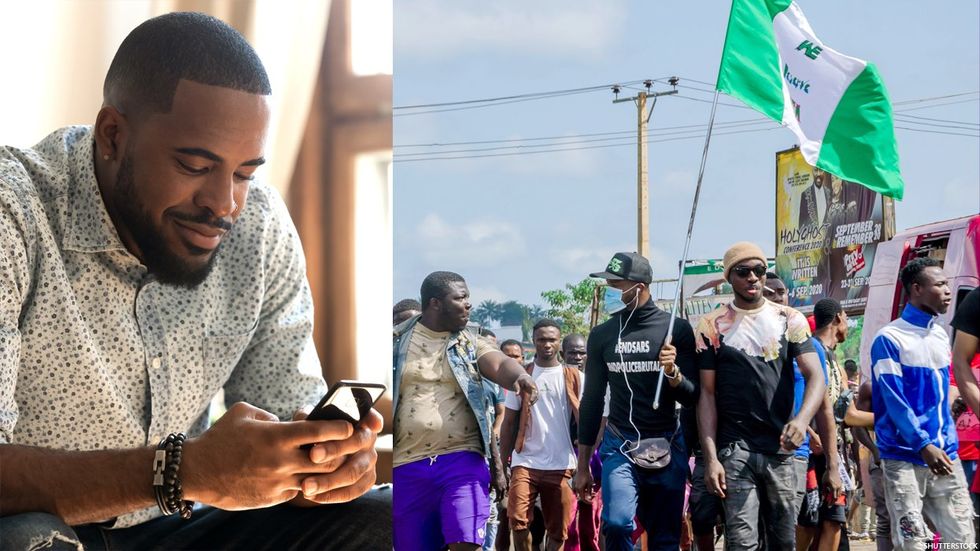Nigeria, where entering into a same-sex marriage carries a 14-year prison sentence, has become a hotspot for criminal activity targeting LGBTQ+ people.
The BBC reports that numerous gay men have become victims of an entrapment scheme that results in kidnappings, beatings, and extortion.
Speaking anonymously to BBC Africa Eye, a Nigerian man and father of three named Mohammed said he met Jamal on a dating app, and that the two agreed to meet after some time spent talking.
But when Mohammed went with Jamal back to his place, a group of men sprang on him, beating him and demanding money. They then forced him to appear naked in a blackmail video, which was later posted online.
Mohammed, who had kept his sexuality a secret up to this point, said of seeing the video, "I was crying. I wanted to kill myself." But a phone call to his children saved his life.
"I called my kids, three of them," he continued. "My son told me he loves his father. Even if his father is queer, he has no issues with that. He gave me a reason why I should not [kill myself]."
Mohammed is not alone in his experience. One LGBTQ+ advocacy group that works with Nigerians told BBC Africa Eye that, each week, 15 to 20 people reach out to them with similar stories of entrapment and extortion. The scheme is known in Nigeria's gay community as "kito."
Emmanuel, another victim of kito, said he was ambushed by a gang of five men who abused him with an iron and forced him to withdraw money under threat of blackmail.
"It hurt me mentally. I don't trust anybody. I just feel insecure," Emmanuel shared.
The 2014 law outlawing same-sex marriage also criminalized public displays of affection between same-sex couples, according to the BBC. Doing so could put someone in prison for 10 years. The law also banned gay clubs and organizations.
Uyaiedu Ikpe-Etim, an openly gay Nigerian filmmaker, noted that queer Nigerians are forced to live online due to rampant homophobia and strict laws. "We don't have a heterosexual privilege to walk up to a person in the streets or in a restaurant and be like: 'Can I have your number?'" she added. But online dating poses its own set of risks.
And in a country where being gay can land you in jail, many LGBTQ+ Nigerians do not feel comfortable going to the police or testifying in court when they are blackmailed.
BBC Africa Eye's documentary on kito and its victims can be viewed here.














































































